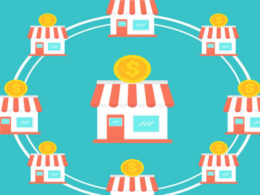5 Big Brands Using Renewable Energy and What We Can Learn From Them
Renewable energy comes from resources including sunlight, wind and rain and can be naturally replenished over time, unlike the finite conventional energy resources of the world. So it has never been as important to go green as it is now – it’s more of a necessity than a lifestyle, and that’s why big brands are deciding to harness the power of renewables. What can we learn from their green ways of working?
Make It Cheaper have just launched an infographic which looks at 5 of the biggest brands that are using renewable energy right now and what they have lined up the future. It also looks at some tips any start up business can take away from them and utilise in their own office.
It’s reported right now that renewable energy accounts for 22% of the global electricity generation, whilst this is expected to at least triple over the next 30 years. Leading brands like Microsoft and Sony are going green as it is becoming more of a viable and necessity option.
Sony’s Austrian manufacturing plant is one of a small handful of sites that use 100% renewable energy and the company has made solid plans to guarantee a zero environmental footprint by 2050. Meanwhile, Google say they are already 35% there since becoming carbon neutral in 2007. The company even installed the world’s largest corporate solar panel at their Mountain View headquarters.
Ikea will have produced 70% of the company’s energy consumption through the use of renewables by the idea of 2015, and plan to be 100% powered by renewable energy by 2020. So, what can start ups and small businesses learn from these leading brands?
Whilst it’s unlikely any small brands will be able to build their own solar panels, there are still some really effective ways of going green. 5-10% can be cut off energy bills by simply analysing and being more aware of electrical use. Turning electrical equipment and lights off when not in use, for example, can seriously cut down on those costs.
It’s also useful for start-ups to start switching over to renewable technologies. More and more inventive green ways of technology are coming out all the time so keeping up with the tech will help find new and alternative ways to go green. In the UK, any businesses who install renewable electricity generating technology will also receive an income via the Feed-in Tariff scheme – it even pays to go green.
There is also a Green Deal which has been backed by the government to help businesses improve energy efficiency in their building. For alternative costs, businesses can apply for additional funding that will allow the repayment of costs through energy bills over time. This can be applied for any business that wants to install green technology.
Have a look at the infographic below for more great advice on how to turn your business green and reap in the rewards.
Source: https://www.makeitcheaper.com/blog/small-business-renewable-energy.aspx







